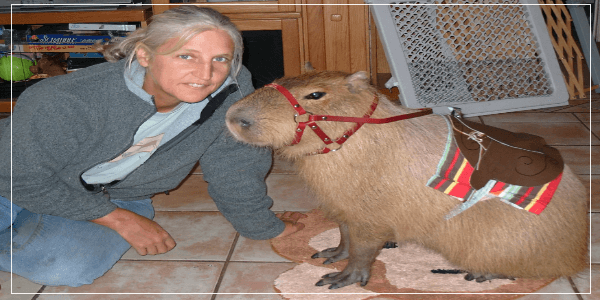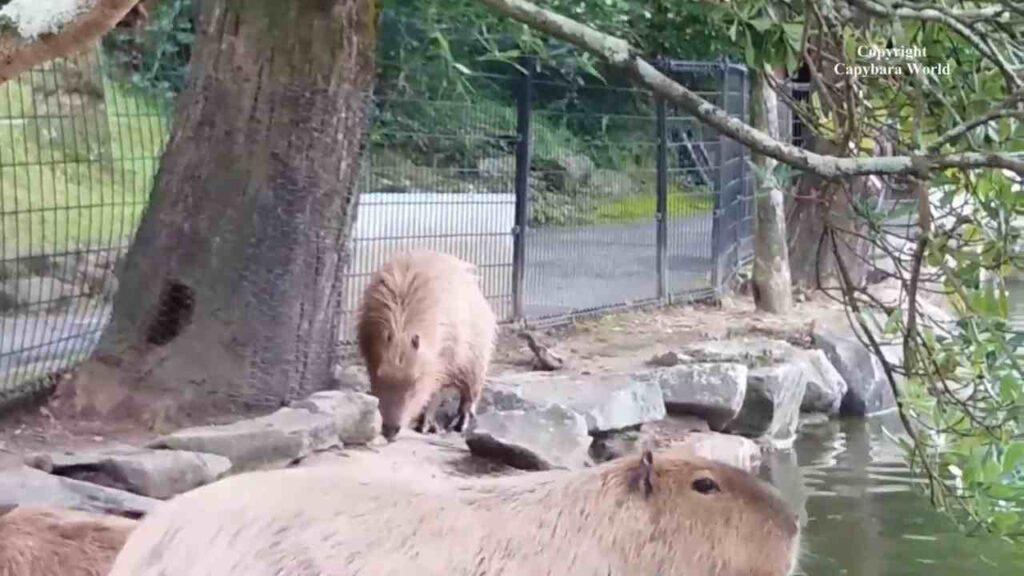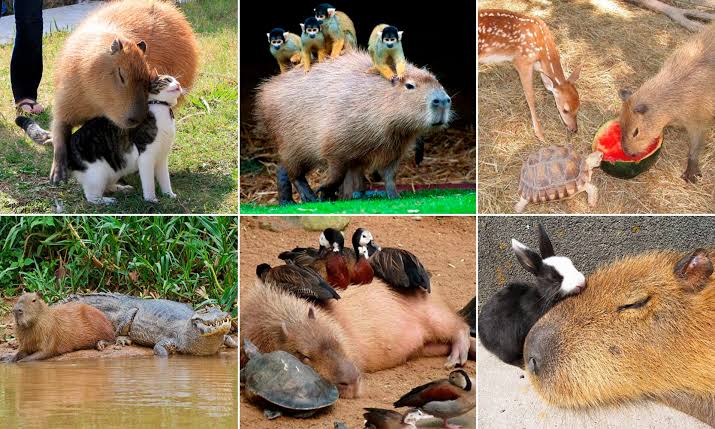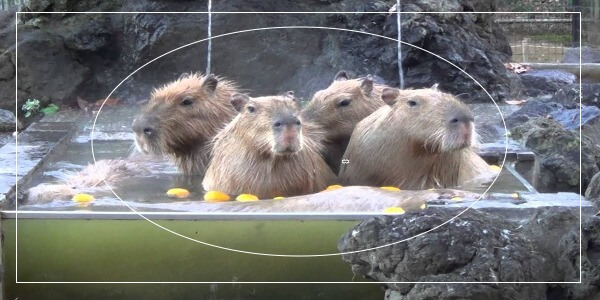As these remarkable creatures continue to gain popularity as pets and become cherished inhabitants of zoos, it’s essential to understand the factors that contribute to their well-being, including their lifespan in captivity.
If you’ve ever wondered about the longevity of capybaras when kept in captivity, you’re not alone. The question of “How long do capybaras live in captivity?” is a common query among curious minds seeking to provide the best care for these unique animals or simply seeking knowledge about their fascinating lives.
How Long Do Capybaras Live In Captivity?
In captivity, capybaras have an average lifespan of around 8 to 12 years. However, they can sometimes live up to 15 years or even longer with proper care and optimal conditions. Various factors contribute to their longevity in captivity.
Diet plays a crucial role in their overall health and lifespan. Capybaras require a balanced diet consisting of fresh grasses, vegetables, and high-quality commercial pellets specifically formulated for them. Providing a nutritionally rich and varied diet helps ensure their well-being and can contribute to a longer lifespan.
Regular veterinary care is another important factor. Routine check-ups, vaccinations, and preventive treatments for parasites or diseases can help promptly identify and address any health issues. Early detection and intervention can significantly impact a capybara’s longevity.
Furthermore, the living conditions provided for capybaras in captivity are crucial. They require ample space to roam, swim, and socialize with other capybaras. Clean and well-maintained enclosures with access to fresh water and appropriate environmental enrichment are essential for their physical and mental well-being.
Can Capybaras Live Longer In Captivity Than In The Wild?
Capybaras can generally live longer in captivity than in the wild. In their natural habitat, capybaras face various challenges that can impact their lifespan, including predation, disease, limited access to resources, and environmental factors. However, when kept in captivity, capybaras have a controlled and protected environment that offers regular access to food, veterinary care, and protection from predators. These favorable conditions contribute to their extended lifespan.
Capybaras in captivity typically have an average lifespan of around 8 to 12 years, although, with proper care, some individuals have been known to live up to 15 years or even longer. It’s important to note that providing a suitable environment that closely mimics their natural habitat is crucial for their overall well-being and to ensure they thrive in captivity.
Signs of Pregnancy In Capybaras – [7 Key Signs]
Factors Affecting Capybaras’ Lifespan in Captivity

- Diet and Nutrition: A balanced diet is a cornerstone of a capybara’s well-being and lifespan. Fresh grasses, a variety of vegetables, and specially formulated commercial pellets should make up their diet. Proper nutrition supports their immune system, promotes healthy organ function, and can contribute to a longer lifespan.
- Veterinary Care: Regular veterinary check-ups and preventive care extend a capybara’s lifespan. Vaccinations, parasite control, and early detection of any health issues are essential. Timely intervention can prevent or address potential problems, ensuring their overall well-being.
- Living Conditions: Creating a Habitat for Longevity Providing capybaras with ample space to roam, swim, and socialize is vital for their physical and mental health. Clean and well-maintained enclosures with access to fresh water and suitable environmental enrichment help stimulate their natural behaviors, promoting longevity and happiness.
- Socialization: Capybaras are highly social animals and thrive when given opportunities to interact with conspecifics. Proper socialization with compatible companions can enhance their mental well-being, reduce stress, and extend their lifespan.
- Environmental Enrichment: Enriching their environment with toys, hiding spots, and interactive elements is crucial. These enrichment activities provide mental stimulation, prevent boredom, and support their physical health, ultimately promoting a longer and happier life.
- Stress Management: Minimizing stressors such as loud noises, sudden changes, or overcrowding in their environment is essential. A calm and peaceful atmosphere fosters their overall well-being.
How To Get a Pet Capybara Uk [Step By Step]
How Does the Lifespan of Capybaras in Captivity Compare to Other Animals?
Compared to small pets like hamsters and guinea pigs, capybaras generally have a longer lifespan. Hamsters typically live for about 2 to 3 years, while guinea pigs have an average lifespan of 4 to 8 years. Capybaras also have a comparable lifespan to rabbits, which typically live between 8 and 12 years in captivity.
When compared to domestic cats, capybaras have a similar lifespan. Both species can live for about 8 to 12 years, although individual variations can occur. Capybaras also have a lifespan comparable to medium-sized dogs, which typically live for 10 to 13 years.
However, it is important to remember that capybaras have a significantly shorter lifespan than humans, who have an average lifespan of 70 to 80 years. Each species has its own unique biology and aging process, leading to variations in lifespan.
| Species | Average Lifespan in Captivity |
|---|---|
| Capybara | 8-12 years |
| Hamster | 2-3 years |
| Guinea Pig | 4-8 years |
| Rabbit | 8-12 years |
| Domestic Cat | 12-15 years |
| Medium-Sized Dog | 10-13 years |
| Human | 70-80 years (average) |
How Big Should a Capybara Enclosure Be? – [Sizes & Design]
Conclusion
The lifespan of capybaras in captivity typically ranges from 8 to 12 years, although individual variations can occur. While capybaras may not have the longest lifespan among animals, their time spent in captivity can be enriched and extended through proper care and attention to their needs.
Factors such as diet and nutrition, veterinary care, living conditions, socialization, environmental enrichment, and stress management all play a crucial role in ensuring the well-being and longevity of capybaras in captivity. By providing a balanced diet, regular veterinary check-ups, suitable living spaces, opportunities for social interaction, stimulating environments, and a peaceful atmosphere, we can greatly contribute to their overall health and extend their lifespan.


![How Long Do Capybaras Live? - [Answered] How Long Do Capybaras Live](https://capybaratips.com/wp-content/uploads/2023/03/Capybara-Pix-250x200.webp)
![Why Do Capybaras Not Have Tails? - [Answered] Why Do Capybaras Not Have Tails](https://capybaratips.com/wp-content/uploads/2023/03/Capy-Tail-250x200.webp)





